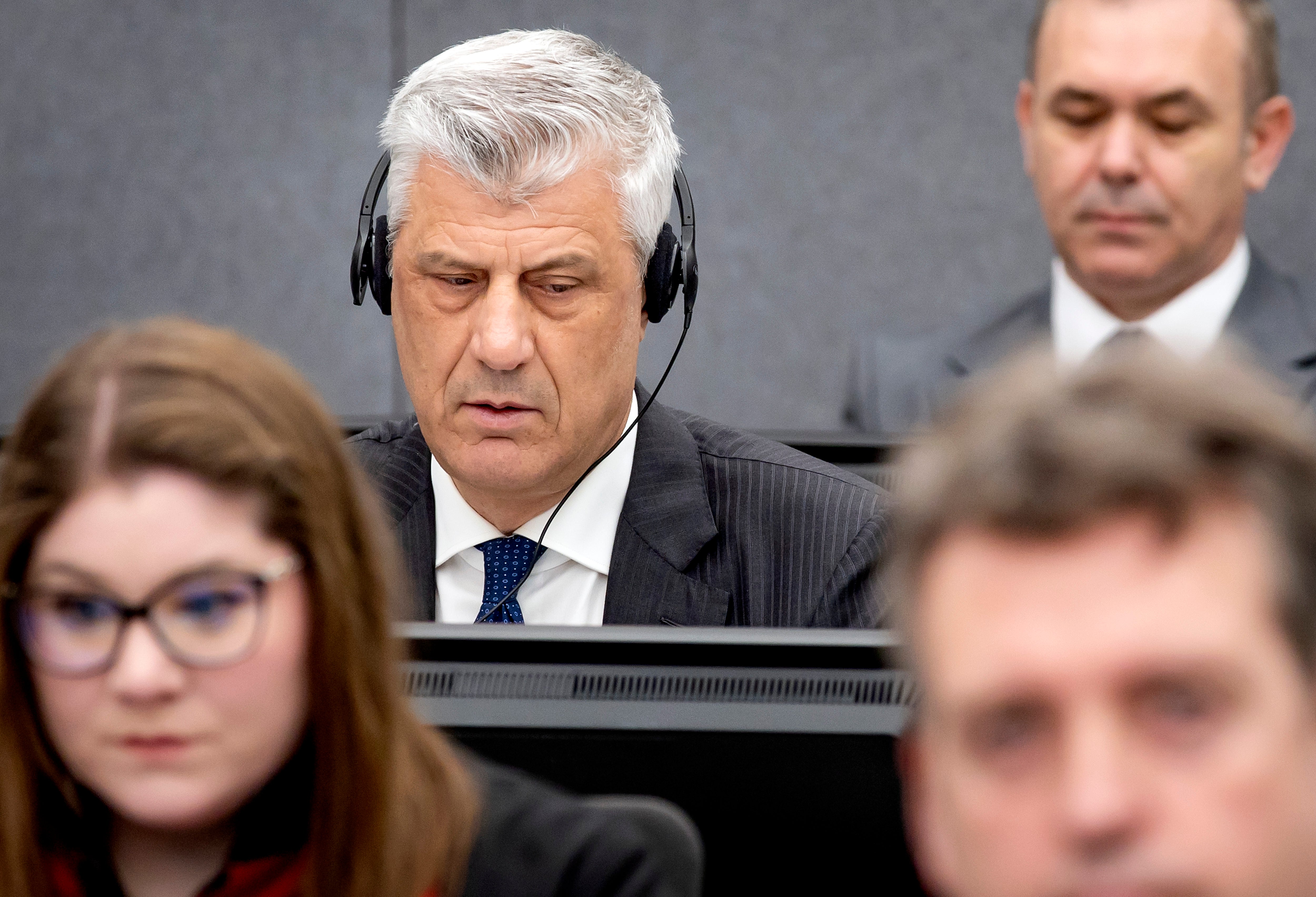Judges reject call for near ban on Hague prison visits for 3 former Kosovo Liberation Army fighters
International judges have rejected a demand by prosecutors for a nearly complete ban on prison visits for three former Kosovo Liberation Army leaders on trial at The Hague for war crimes

International judges on Monday rejected a demand by prosecutors for a nearly complete ban on prison visits for three former Kosovo Liberation Army leaders on trial at The Hague for war crimes.
Kosovo ex-President Hashim Thaci, former parliamentary Speaker Kadri Veseli and ex-lawmaker Rexhep Selimi face charges including murder, torture and persecution during and after the 1998-1999 war with Serbia.
The three defendants have been in custody since November 2020. Prosecutors called on the judges to limit their prison visits to only their lawyers or close relatives, saying that the three were attempting to tamper with witnesses and leak confidential testimony.
But a panel of judges of the Kosovo Specialist Chambers headed by Charles L. Smith III said that the request by prosecutors wasn't “proportional” and with “a severe eroding effect upon the rights of the three accused.”
“At this stage, the panel is therefore not convinced that measures of segregation would be necessary and/or proportionate based on the information presently before the panel,” the verdict said.
Prosecutors from the Kosovo Specialist Chambers — a branch of the Kosovo legal system set up at The Hague, Netherlands, in part because of fears about witness safety and security — said that they had found that individuals visiting the three defendants had later approached protected witnesses "to compel these witnesses to withdraw or modify their testimony in a manner favorable to the three accused.“
The judges decided that visits from non-family members be restricted to five per month, and that the three couldn't meet all together as a group with individual visitors. The ruling also said that the conversations of the defendants could face increased monitoring.
“The panel considers that the legitimate aim pursued can be achieved by measures that are less invasive of the rights of those concerned and that should therefore be preferred to segregation,” the judges ruled.
The court in The Hague was set up after a 2011 Council of Europe report that alleged KLA fighters trafficked human organs taken from prisoners as well as dead Serbs and fellow ethnic Albanians. The organ harvesting allegations weren’t included in the indictment against Thaci.
Last week, Kosovar opposition protesters used tear gas and flares at the entrance of a hotel where Kosovo Specialist Chambers President Ekaterina Trendafilova was holding a meeting. The demonstrators believe that the court isn't transparent and is biased against Kosovar fighters who had fought against Serb repression.
Most of the 13,000 people who died in the 1998-1999 war in Kosovo were ethnic Albanians. A 78-day campaign of NATO airstrikes against Serbian forces ended the fighting. About 1 million ethnic Albanian Kosovars were driven from their homes.
Serbia doesn't recognize Kosovo’s declaration of independence in 2008.
___
Llazar Semini reported from Tirana, Albania.
Subscribe to Independent Premium to bookmark this article
Want to bookmark your favourite articles and stories to read or reference later? Start your Independent Premium subscription today.
